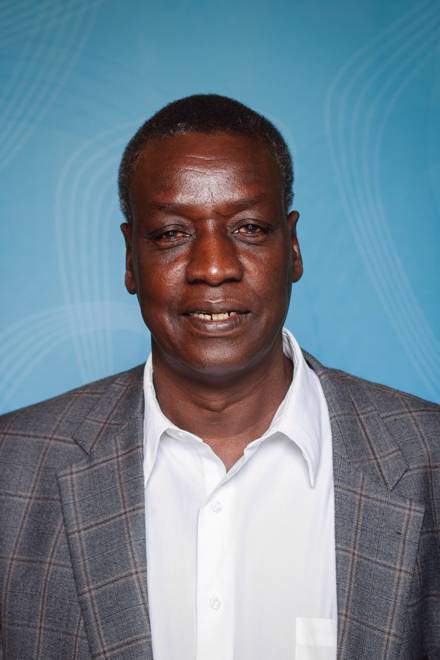- Sudan and South Sudan
- Post-conflict and transition situations, including legitimacy, economic governance, fragility, natural resources, nation- and statebuilding, and transitional justice
Luka Biong Deng Kuol left PRIO in 2022. The information on this page is kept for historical reasons.

Luka Biong Deng Kuol
Interests and experience
PRIO Global Fellow 2014-2022.
Luka Biong Deng Kuol (PhD) is the Acting Dean and a Professor of Practice at the Africa Center for Strategic Studies (ACSS) at US National Defense University in Washington and a faculty lead of three academic programs: National Security Strategy Development (NSSD) in Africa, Managing Security Resources in Africa (MSRA) and Emerging Security Sector Leaders (ESSL) in Africa. He is also Associate Professor of economics at University of Juba, South Sudan, a Global Fellow at the Peace Research Institute Oslo (PRIO), and a fellow at Rift Valley Institute. He was a resident fellow at Harvard Kennedy School, former director of Institute for Peace, Development and Security Studies at University of Juba. He served as a minister of presidency of Southern Sudan and a national minister of Cabinet Affairs of Sudan during the 2005 Sudan Comprehensive Peace Agreement until he resigned in 2011. He also worked as a member of teaching staff at the Faculty of Economics and Rural Development at the University of Gezira, Sudan, a senior economist for the World Bank in Southern Sudan and a founding member of the New Sudan Center for Statistics and Evaluation (currently South Sudan National Bureau of Statistics). He received his PhD from the Institute of Development Studies (IDS) at the University of Sussex, UK and earned a Master of Arts in Economics and a Master of Business Administration (MBA) from Catholic University of Leuven, Belgium and Bachelor of Science from Faculty of Economics and Social Sciences, University of Khartoum, Sudan. He has published scholarly articles in a wide array of prestigious international journals and contributed with many peer-reviewed chapters in various books. He is a co-editor of a book entitled The Struggle for South Sudan: Challenges of Security and State Formation and co-editor of a book entitled Abyei: Between Two Sudans. He serves as a member of editorial board of Disasters journal.
Latest publications
All publications
Rethinking National Security Strategies in Africa
Journal article in International Relations and Diplomacy
National Security Strategies Development in Africa: A Toolkit for Drafting and Consultation
Why Does Famine Persist in Africa?
Monograph
Confronting Civil War in Africa
Monograph
What Sudan and South Sudan stand to gain by reopening their border
Popular article in The Conversation
Civil-Military Relations and Sudan’s Treacherous Path to Democracy
Journal article in Texas National Security Review
Lessons from a Decade of South Sudanese Statehood
Popular article in Africa Center for Strategic Studies
Is Education a Pathway to Fostering Civicness and a Resilient Social Contract in Africa? The Case of South Sudan
Newly Evolving Pastoral and Post-Pastoral Rangelands of Eastern Africa
Journal article in Pastoralism
Civil Wars in Sudan and South Sudan
Book chapter in The Palgrave Encyclopedia of Peace and Conflict Studies
Latest news
New Book from Global Fellow Luka Biong Deng Kuol: The Struggle for South Sudan
PRIO Global Fellow Luka Biong Deng Kuol and Sarah Logan of the London School of Economics and Political Science have released a new book on South Sudan titled The Struggle for South Sudan: Challenges of Security and State Formation.
Dr. Luka Biong Deng Visits PRIO
PRIO Global Fellow Dr.
Journal of Eastern African Studies, Special Issue: Politics and violence in eastern Africa: the struggles of emerging states, c.1940-1990
Volume 8, Issue 4, 2014
Two New PRIO Projects on the Effect of Aid
Funded by AIDEFFECT program of Research Council of Norway
Global Fellows Programme at PRIO
PRIO Global Fellows are academics with strong scholarly records and a commitment to the research agenda on peace and conflict.
Latest events
The Diversity of Violence in Eastern Africa
South Sudan: The Economic Cost of Civil War and its Implications for IGAD-led Peace Negotiation
Post-Conflict Transitions: Political Institutions, Development And a Domestic Civil Peace (PIDDCP)





